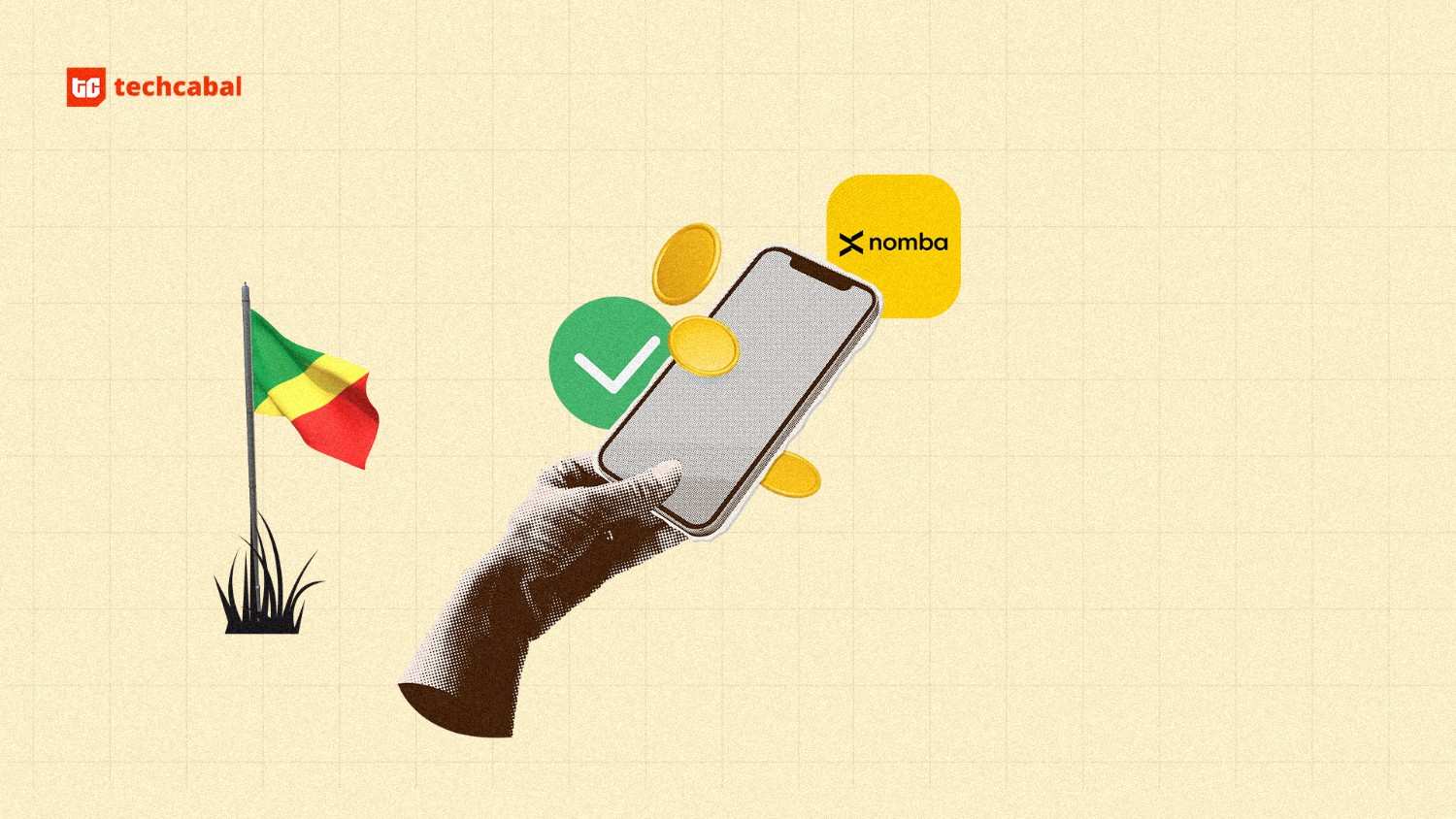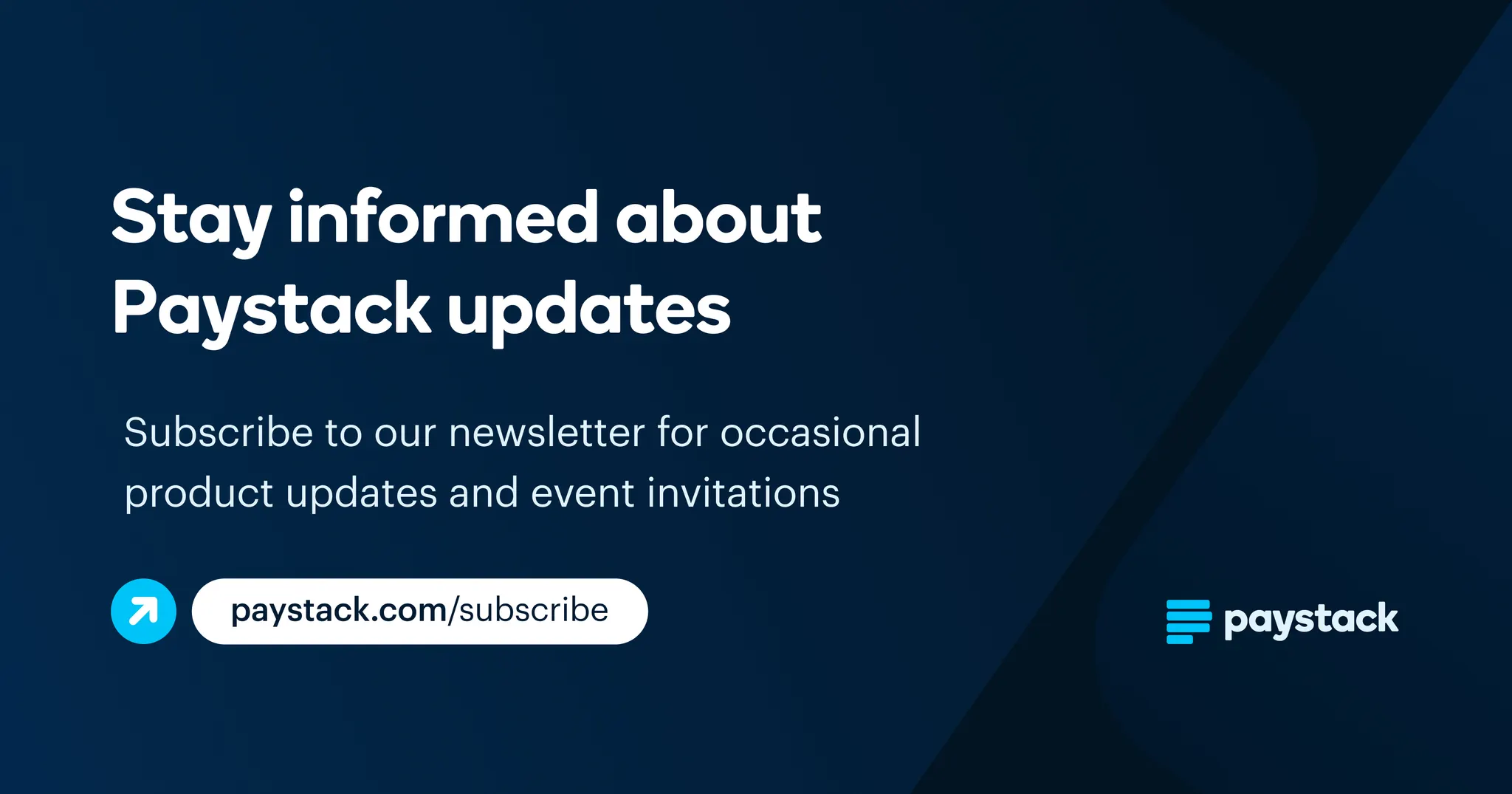- 👨🏿🚀TC Daily
- Posts
- Nomba expands to the DRC
Nomba expands to the DRC
Special Number: Bank-backed fintechs are cashing in


Good morning. ☀️
What does the world look like if you could instantly translate anything into a Nigerian language?
As an avid Africa Magic Hausa fan with a deep disdain for the lazy subtitles, that’s a world I want to live in.
So when I got tagged in this AI translation video, I immediately pulled up my DStv subscription, lives were about to be changed.
I’m super geeked for every cultural thing Nigerians are using AI to do, and I can’t wait until we do more.
-
Zia.
Let's get into it!
Companies
Nigerian fintech, Nomba, plants its flag in the DRC

Nomba, a Nigerian payment and banking services provider, is now live in the Democratic Republic of the Congo, quietly setting up shop over the past year and choosing remittances as its entry point.
Why DRC, and why remittances? Over 80% of Congolese adults remain unbanked, yet the banking sector is stable, profitable, and almost entirely dollarised. Mobile money dominates everyday life, with more than 24 million wallets, withdraw their cash instantly. At the same time, remittances stand out as the one financial behaviour most trusted and high-frequency. Traders routinely move funds from China, Dubai, and other corridors, making remittances a natural entry point for the fintech.
So, what’s Nomba’s state of play? Nomba enters a market where banks are chasing government and mining money, and mobile money giants handle daily digital transactions. Somewhere in between that, Nomba wants to bank the unbanked through in-person agents, and it's using remittances as its Trojan horse. The fintech is recruiting physical agents across Kinshasa—the country's capital—to manage inflows from China, Dubai, and other high-volume corridors. It plans to earn trust one transaction at a time, and then layer on banking, payments, and eventually credit.
The climax: Nomba acknowledges the DRC’s deep trust issues in digitisation and its cash-heavy culture. Yet it still intends to start with the least digitised users, the very group least inclined to trust formal systems. Is that smart or risky? I say both. In a cash-heavy and low-trust economy, it will not be an easy road, but pull it off, and Nomba will have itself the Congo and its own payment rails.
Powering businesses across Africa to pay and get paid in local currencies.

With Fincra, businesses, startups, global enterprises and platforms can easily send and receive payments in multiple African currencies, empowering trade, and growth across the continent. Create your account in 3 minutes.
Telecoms
Vodacom is eyeing additional Safaricom stake

Vodacom Group, South Africa’s biggest telco, only needs an additional 10.1% stake to flip its 39.9% Safaricom stake into outright majority control of Safaricom. And now that the Kenyan government is preparing to put part of its 34.9% stake on the market for the first time in nearly 20 years, the door looks wide open.
What happened? Kenya’s Treasury plans to sell an undisclosed portion of its Safaricom shares before the end of the 2025/26 fiscal year to raise roughly KES 149 billion ($1.1 billion) to relieve pressure on ballooning public finances without introducing new taxes in a tough economy. Vodacom is eyeing this sale and expects to be formally invited into the room once the sale begins. The telecom operator has already told investors it’s open to buying.
Vodacom has a track record: In 2022, the company snapped up the Egyptian arm of Vodafone, a technology communications company, in its largest acquisition to date. The telco also jointly owns the M-Pesa platform with Safaricom after a JV deal that gave them full control. Vodacom is also partnering with Airtel Africa to share infrastructure (towers, fibre) in Mozambique, Tanzania & DRC. The operator isn't shy about making big plays.
What this could mean: If Vodacom becomes the majority owner, it could steer Safaricom’s strategy and could deepen integration between Safaricom and other Vodacom operations across Africa. This could create real scale between the two companies.
Enjoy smooth payments while you're home this Detty December

Coming home for Detty December? Enjoy smooth payments every day with your Paga US account. Send money to any bank instantly. Don’t miss out, get started now.
Companies
Egyptian HR-tech Bluworks raises $1M

An Egyptian startup founded in 2022, Bluworks offers a digital platform to manage frontline and essential operational employees who comprise 60% of the Middle East and North Africa (MENA) workforce, but remain underserved by the more basic HR systems. And now, thanks to $1 million raised in funding, the company gets to export its services on a greater scale and expand across small to medium businesses (SMB) in the region.
Why this matters: Bluworks works; handles schedules, tracks attendance, processes payroll and compliance, replacing the outdated business practices common to the businesses in logistic, retail, food, beverage, and manufacturing sectors, which is something frontline workers across Egypt and MENA have been excluded from. The seed funding increases Bluworks’s reach to offer solutions to problems in operations, payroll disputes, and much more by offering transparency and efficiency in the management of essential workers.
What will Bluworks do with the money? The $1 million seed round, led by Enza Capital, A15, and Beltone Venture Capital, goes to funding deeper penetration in Egypt's SMB market, strategic partnerships, and regional expansion across MENA, ultimately enhancing its platform with advanced analytics and AI capabilities to strengthen its position as infrastructure for frontline labour management.
Stay up to date with Paystack news!

Subscribe to Paystack for a curated dose of product updates, insights, event invites and more. Subscribe here
companies
Seychelles fintech Fusepay launches digital payment platform

What do you build in a country where cash flow is slow, and paperwork never ends? For Fusepay, the answer is a digital payments system built to rip out manual processes at the root.
Three months after raising a $350,000 pre-seed round, the Seychelles-founded fintech is rolling out its flagship product, FuseCheq, which offers virtual business accounts, instant transfers, and post-dated digital payments. Licenced by the Central Bank of Seychelles to target resellers, billers, wholesalers, and paper and manual reliant systems that enable fraud, all while earning 0.6% per transaction.
Why it matters: Seychelles’ business sector has slow cash flow and is prone to errors. Thanks to the country’s shift to using digital finance, Fusepay has a total addressable market (TAM) of around $25 billion across more than 20 frontier markets in African and Indian Ocean islands, the Caribbean, and the Pacific to fill, focusing on B2B payments and addressing a critical gap in existing infrastructure.
What is next? The company aims to spend the next 18 months expanding to Mauritius and the Maldives, and is concurrently developing an inventory and order management system for SMBs to address the challenges in juggling multiple tools to manage business finances. Investors recognise the opportunity as noteworthy
AI in a Nutshell gives you weekly AI knowledge and insights

Want to stay close to AI but hate long reads? AI in a Nutshell gives you weekly AI knowledge, news, tools, and insights - short, smart, and fun. Perfect for curious (but lazy) readers who still want to stay ahead. Subscribe here.
SPECIAL NUMBER
₦7.91bn ($5.43 million)
Access Holdings’ Hydrogen, GTCO’s HabariPay, and Stanbic IBTC’s Zest Payments made a combined ₦7.91 billion ($5.43 million) profit in the first nine months of 2025 as traditional banks cemented their place in Nigeria’s crowded digital payments battleground.
The gains were driven by rising transaction volumes and values, as merchants, corporates, and everyday users increasingly relied on bank-backed digital channels. It is also the first time all three bank-backed fintechs are profitable, with Zest flipping from losses to profit in Q3.
CRYPTO TRACKER
The World Wide Web3
Source:

Coin Name | Current Value | Day | Month |
|---|---|---|---|
| $86,625 | + 0.09% | - 22.20% | |
| $2,819 | - 0.27% | - 28.17% | |
| $2.05 | - 0.52% | - 19.75% | |
| $844 | - 0.67% | - 24.32% |
* Data as of 05.51 AM WAT, November 24, 2025.
Job openings
- Busha — Business Development Manager, Reconciliation and Settlement Analyst — Hybrid (Lagos, Nigeria)
- Trust Wallet — Android Engineer, Frontend Engineer, Growth and Performance Marketing Analyst, Talent Acquisition Specialist — Remote
- Paystack — Senior Fullstack Engineer — Remote (Lagos, Nigeria)
- Paystack — Business Development Partner — Lagos, Nigeria
- Flutterwave — Treasurer, Africa — Lagos, Nigeria
- Big Cabal Media — Senior Financial Analyst, Junior Sales Analyst — Hybrid (Lagos, Nigeria)
There are more jobs on TechCabal’s job board. If you have job opportunities to share, please submit them at bit.ly/tcxjobs.

Written by: Opeyemi Kareem and Zia Yusuf
Edited by:Ganiu Oloruntade
Want more of TechCabal?
Sign up for our insightful newsletters on the business and economy of tech in Africa.
- The Next Wave: futuristic analysis of the business of tech in Africa.
- TC Scoops: breaking news from TechCabal
- Francophone Weekly by TechCabal: insider insights and analysis of Francophone’s tech ecosystem
P:S If you’re often missing TC Daily in your inbox, check your Promotions folder and move any edition of TC Daily from “Promotions” to your “Main” or “Primary” folder and TC Daily will always come to you.

How did you find today's edition of #TCDaily? |



